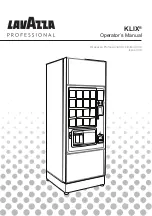
Ricoma Quick Start Guide
59
The difference between sharp point and ball point needles
The bobbin
Figure 126
THREAD
When it performs well, we take the bobbin for granted. But when you have trouble with bobbin thread,
it confounds all efforts toward efficient production. That’s because the bobbin affects all needle bars.
This makes it impossible to achieve better sewing by simply switching to another needle. Such a vital
element commands closer examination.
You have the choice of winding your own bobbins or buying pre-wound commercial bobbins in
disposable cartridges. Self-wound bobbins tend to be inconsistent in the way the thread releases
from the spool. For high-speed commercial embroidery machines to function properly, a smooth and
consistent release of thread is required. Commercial pre-wound bobbins are a cost-effective and
efficient solution to ensure bobbin thread runs smoothly.
On average, bobbin thread usually last for about 35,000 to 42,000 stitches depending on the stitch
length of your design. Your Ricoma machine requires a size L bobbin. Polyester bobbin thread is
preferred over cotton bobbin thread, as it tends to leave less lint.
There are two types of polyester bobbins: spun and filament.
Spun: In this process, small fibers are spun together to form the thread. We do NOT recommend using
spun bobbins, as they have the tendency to shear off and collect under the tension spring of the bobbin
case. This may cause tension issues over time.
Filament: Under this process, the thread consists of one long filament. Filament bobbins run cleaner in
the bobbin case and are significantly stronger.














































